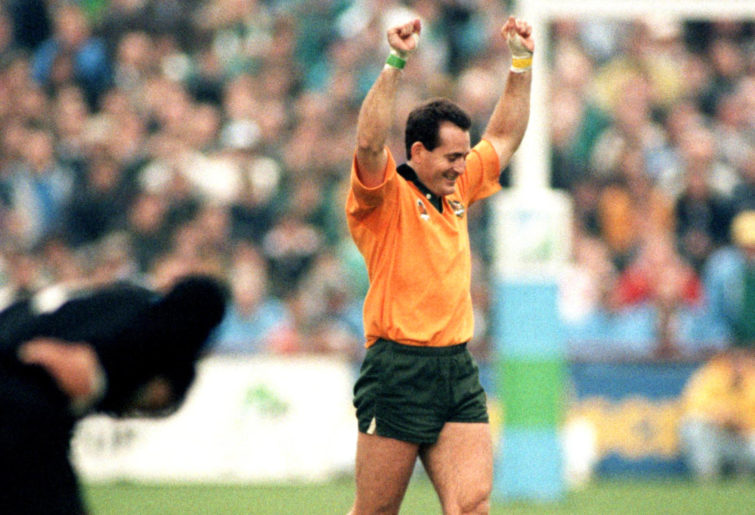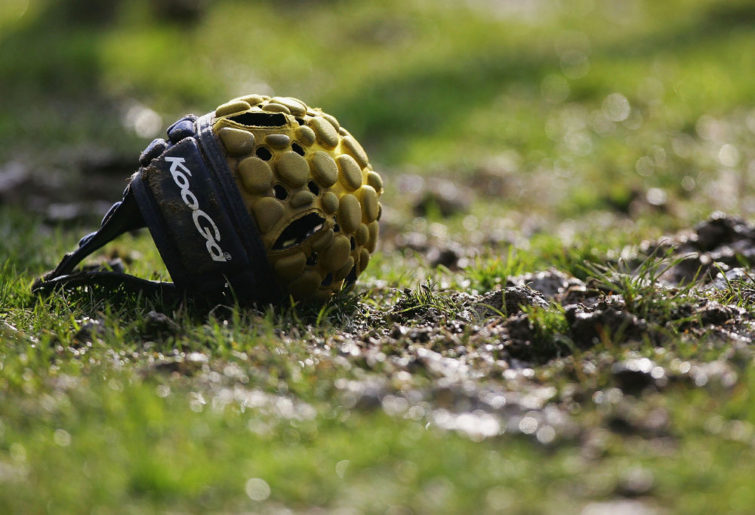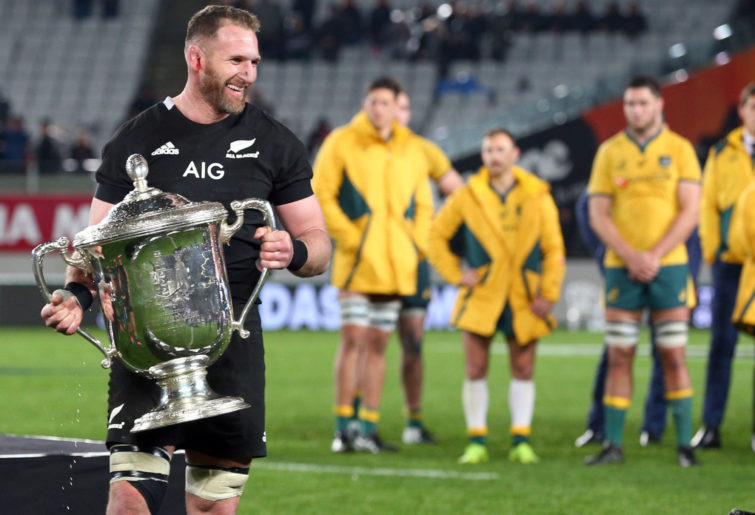James Green
new author
Roar Rookie
Opinion
My formative rugby union appreciation years were in the 1980s.
That is to say, pre-professionalism, strictly amateur and games televised on the ABC and commentated by Gordon Bray. The names I knew were Simon Poidevin, Mark Ella and Michael Lynagh, who almost single-handedly killed the running game by being such a good goal-kicker.
There was David Campese, a man known for his genius on the wing and being totally unable to tackle at fullback, and Matt Burke, not to be confused with the other Matt Burke.
These were days when you could get away with grandiose claims of rugby union being the game they played in heaven.
My expectations of coaches were shaped by watching Bob Dwyer sitting stoically and assessing the play, seemingly confident that he had done what he needed to do and now the rest was up to the players.
I knew that there were laws, not rules, referees were not umpires and, more importantly, that refereeing decrees were sacrosanct and woe betide any player who questioned the authority of the ref as their team would surely be punished by being marched down field, ten metres at a time.
Our players formed the national team, upholding the national pride in the same way that the cricketers did during summer. These players belted out the national anthem lustily, if not necessarily tunefully, at the beginning of each international match.
My opportunities to watch live international rugby during this era were limited, although I have distinct memories of watching Australia play Italy at Olympic Park, a low-scoring and dour affair that was enlivened by watching David Campese make a break down the sideline, run outside the field at about the 22 and then swerve back in to score and have the try allowed. It was the only try of the game.

(Photo by Ross Kinnaird/EMPICS via Getty Images)
My enjoyment of rugby followed the sport into the ’90s and then into the professional era and such innovations as being able to make tactical interchanges rather than forced substitutions owing to injury.
I followed Gordon Bray from the ABC to Channel Ten, confident in his integrity and that he was not selling out but simply going where the rugby was. And, indeed, how could he not. These were heady days for Australian rugby.
We had Tim Horan and Jason Little and the second coming of Matt Burke, not to be confused with the other Matt Burke. As an aside, I still remember Burke adjusting the tee for a kick so effectively that by the time he’d finished he promoted it about a body length from where the penalty had been marked. I just wish I could remember which game that was.
Then came John Eales, a skilful player and great captain with a face made for radio and a voice made for the silent-picture era. This was the decade when we won two World Cups and the talk was if we won a third we’d get to keep the trophy. This confidence was both misplaced and such a statement of outrageous hubris that the gods may still be punishing us.
Again, my ability to watch live rugby matches was limited and so with the formation of the Melbourne Storm I not so much switched allegiances as expanded my rugby horizons and came to appreciate a similar but different sport. League was a sport to which I’d had little exposure and had been initially turned off by the five-tackle-then-kick process and the odd Origin game whose highlights seemed to include a lot of footage of blokes swinging haymakers.
I came to enjoy it, however, for its own sake: the style of it, the skill and athleticism, the different tactical approaches and the players who are just good at what they do. Although I’ll never set aside my distaste at the way some fans hang over the fence and abuse the kicker. And I still like rugby.

But I’m not sure what’s happening with rugby union at the moment and I’m not sure where it all went wrong. Because I’m looking at the resignation of Raelene Castle and I’m thinking surely this isn’t my game.
It’s not the resignation that’s causing me concern, but the environment in which it happened. I’m looking at the way the pack circled and attacked, the way the oh-so-reasonable suggestions and advice barely hid a vicious savagery, the feeling that self interest and personal gain were at the heart of the attempt to force decisions to be made rather than the stated position that it was for the good of the game.
I look at the opprobrium being heaped upon her – both personally and her decision making – and I think that, yes, rugby does seem to be going through a period of upheaval and Australia’s rugby light is dimmed but maybe it’s the toxicity of the environment that’s leading to the lack of success on the sporting field.
We’ve been headed here for a long time now and again, yes, there seems to have been some management failures – some financial and some cultural – in that time. But the broader culture – the pile-on trolling and social media outrage, both faux and misguided – has contributed so much more to Australian rugby’s slide down the international standings.
The way rugby is presented on Foxtel makes me nauseous. In this fractured media landscape, the decision to open up to tender the broadcast rights seemed the action of a thoughtful operator who would have been vilified for not exploring potential options.
And we can’t set aside the playing group and those directly responsible for their skills and development. One of the key differences between the Wallabies and the All Blacks is attacking within five metres of the try line. When the All Blacks have the ball and they’re picking and driving their way to the line, you’re waiting for them to break through. When the Wallabies have it, you’re waiting for them to make a mistake.

(Photo by Renee McKay/Getty Images)
Plans, skills, tactics and strategy. When Australia was winning games, they had all of those. They were multi-dimensional, multi-phased, and well drilled. Australia won because they did what was necessary to win.
During the grand slam-winning tour, they won off the back of field goals when they had to. Players were chosen to do the job they needed to do, such as Michael Lynagh, who got the job at five-eighth not because he was the better five-eighth but because he was the better kicker.
When we started relying on the hope of a Stirling Mortlock intercept or 50-50 calls going our way then we were relying on luck, not ability. When the game plan for too long seemed to be “get the ball to Izzy” and see if he can do something, then that’s not a game plan, that’s a recipe for failure.
Speaking of which, because I can’t not, so-called virtue signalling is a criticism that’s often thrown at Castle and RA. But the demonstration and concrete application of values consistent with reducing inequality should be applauded.
Look at the Australian players’ response to apartheid. Rugby has engaged with social issues on a number of different levels for decades – sometimes well, sometimes even effectively and sometimes badly. But a sport that has a policy of inclusion, diversity and support has a better chance of success than one that is inward-looking, insular and exclusionary.
I have enjoyed watching the Wallabies when they were successful, I have enjoyed watching rugby even when they weren’t. I have continued to support the team in its many incarnations even when it seems to be tearing itself to pieces.
What’s done is done but we need to pull together not pull apart. In the same way that I’m not good enough to play the game, I don’t know enough to suggest who should manage Rugby Australia or how they should do it.
But what I do know is that the toxicity needs to end or we won’t have a game, or a team, in which we can take pride or possibly even be able to follow.